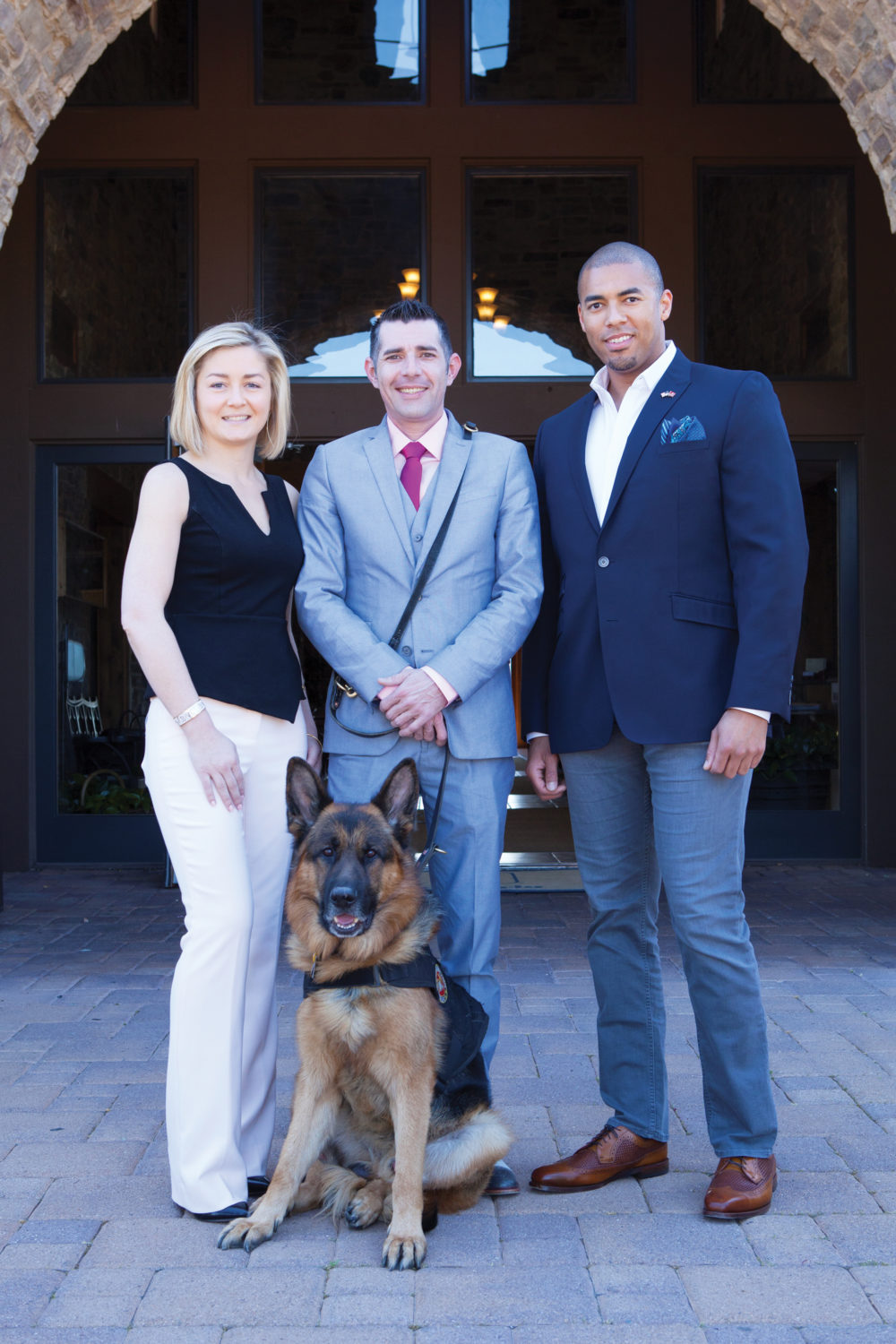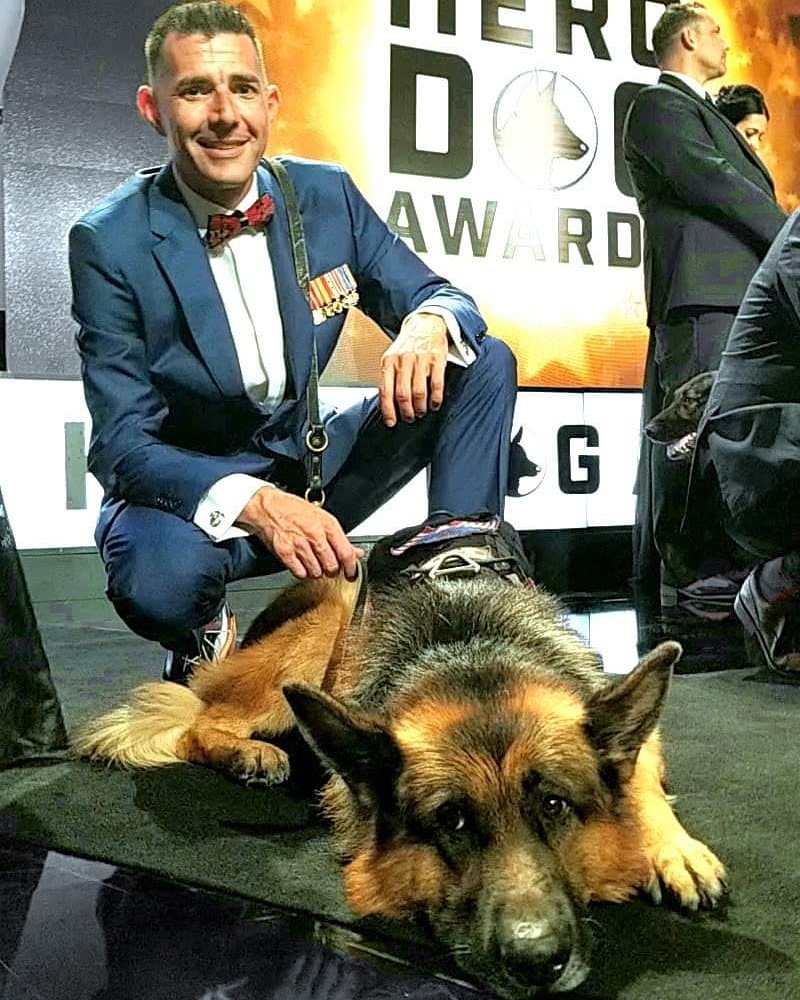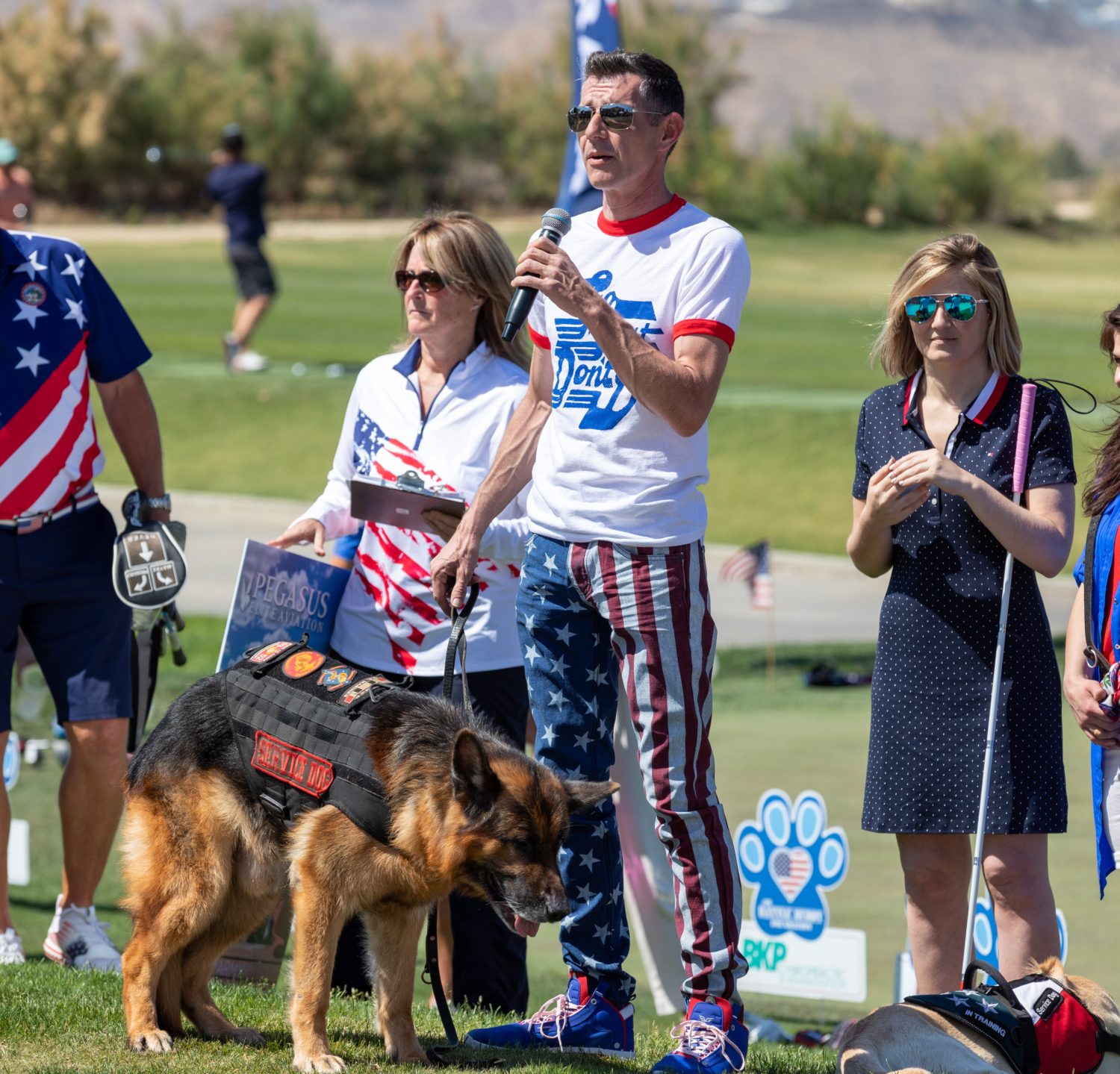Kenny Bass vividly remembers being hit by an IED. The deafening blast. The stunning force. The swell of flame and debris. A young Marine Corps combat infantryman serving in the Iraq War, Kenny was conducting a counter-ambush patrol in central Iraq when a roadside bomb detonated, wounding him physically and mentally. After two tours, Kenny was declared 100 percent disabled by age 23, but he would feel the continued effects of that blast for years to come.
“The problem comes when veterans who are trained to survive and thrive in a combat environment come home to relative safety,” Kenny said. “Both combat and reintegration require training, but I was stuck with that kill switch on for nearly 10 years.”
For years, Kenny struggled with PTSD, a traumatic brain injury, anxiety, night terrors, public places, large crowds and other aspects of daily life as Kenny and his young family grappled with normalcy.
“I was holed up in my garage on all kinds of medication for almost a decade,” Kenny said of his reintegration into civilian life. “I was taking far too many pills on a daily basis, and was left in a place where I felt mostly numb. I genuinely never felt more unstable than when I was ‘fully medicated.'”
Kenny’s friend and battle buddy, L.A. County resident Joshua Rivers, understood the struggle. They had served together in Iraq, and though they dealt with it differently, they both fought through the hardship of reintegration.
“You were blown up and shot at every day,” Joshua said of his time as an infantry Marine on the front lines of the Iraq War. “You always had something to do and someone to do it with. Always. But when you get back, you don’t have anything. No one has your back the same way. Your battle buddies are gone.”
Though the road has been unimaginably difficult, Kenny and Joshua are lucky compared to many.
“A lot of veterans end up drinking their lives away, burying things, or developing an emotional distance that stays with them forever,” Kenny said.

Photo by @BrianKramerphotography
Others never have the opportunity to learn coping mechanisms, whether healthy or not, because roughly 22 veterans commit suicide a day, according to a decade-long study conducted by the United States Department of Veterans Affairs, and reinforced again in more recent studies. Demonstrating the gravity of the problem, more veterans have died as a result of suicide than have died due to the combat losses in both the Iraq and Afghanistan wars combined, according to Chrissy Faulkner, Deputy Director of the Battle Buddy Foundation.
“There was no end to their pain in sight,” said Chrissy, who lost a close family friend to veteran suicide. “So hopeless, they make their own end.”
Like Kenny, many veterans who struggle with reintegration are prescribed heavy medications as their main course of treatment and rehabilitation.
“The answer I got from the VA was medication,” said Kenny, who was taking multiple medications totaling over 30 pills a day at one point, “but the side effects of many of these medications included depression and suicidal thoughts. My quality of life was not better.”
Kenny needed another answer. In 2012, Kenny’s physician at the VA recommended and prescribed him a service dog for his PTSD and TBI. Unfortunately, the VA did not, and currently does not provide or pay for service dogs. After researching and finding a few organizations that did train service dogs for Kenny’s needs, he found that the service dog organizations had quoted him anywhere from $10,000 to $60,000 that he would need to fundraise in order to obtain one. After hitting plenty of roadblocks along the way, the organization Kenny ultimately applied to was on the lower end of the cost spectrum at $15,000, operated by an older generation Marine, and was utilizing German Shepherds with world-class bloodlines to train for service work. Kenny applied, and after being accepted, and doing some initial fundraising to start the process and being matched with Atlas the Wonderdog, he reached out to friends and family, including Joshua, for help to meet his total fundraising goals for Atlas.
“I’d never heard of a service dog for PTSD,” Joshua said, “but just during the short time Kenny had (his service dog), Atlas, I could quickly see glimpses of the guy I used to know coming back.”
At the time, Joshua was looking to give back to the community in a way that he felt personally connected to, but hadn’t found anything that really spoke to him. Shocked that veterans had to pay for what seemed like a life-saving service, Joshua made a suggestion.
“After you finish fundraising for your own service dog, Atlas, what do you think about doing this for other veterans?” Joshua recalls asking.
To which, Kenny replied: “There’s nothing else I’d rather do.”
In this moment Kenny had the realization that his struggles and near loss to his own demons during that period, were no longer something to be ashamed of or looked upon as failure, but instead a well to be drawn upon in order to better serve his fellow combat veterans struggling with similar post-war demons. Out of these experiences, The Battle Buddy Foundation was created.
In 2013, Joshua and Kenny founded The Battle Buddy Foundation; today, the nonprofit provides elite service dogs to disabled combat veterans of all eras who suffer from Post-Traumatic Stress Disorder, traumatic brain injury, physical limitations, and other disabilities – at no cost. In addition to providing service dogs, the foundation acts as a resource network, awareness program and a supportive community.
The foundation trains dogs for each individual’s specific needs, covering additional training, travel costs, and ongoing support throughout the dog’s entire working life, usually about 7-10 years. (Including dog food, veterinarian care, and specialized equipment when needed.) The foundation’s cost for the initial training and placement process of each service dog amounts to about $25,000, and can be as high as $60,000 over the working life of the service dog.

Photo by @BrianKramerphotography
“Our goal is to provide long-term and tangible change for veterans and their families,” Kenny said. “Our dogs are trained to perform specific tasks that mitigate a veteran’s specific disabilities. That’s what truly sets our organization apart: It’s not a one-size-fits-all approach.”
Kenny, for example, struggled with night terrors for years, constantly reliving the IED explosion. After a decade of insomnia, exhaustion took a serious toll on his quality of life.
“Atlas is trained to sense and interrupt my nightmares,” Kenny said. “He’ll lick my face or lay on me, to wake me up and calm me down.”
Service dogs perform a wide range of commands, treating both psychiatric and physical concerns. When Atlas “posts” or “blocks,” he stands on alert behind Kenny, allowing Kenny to relax knowing his back is protected.
“I struggled to go out in public,” Kenny said. “I’d be in a conversation with people, but I’d be too focused on potential threats.”
Anxiety alerts also are common and can range from a paw on Kenny’s foot to a nudge to a noise.
“It helps with triggers. I’ll be clenching my fists or tapping my hands on the table, and he’ll paw at my foot. It breaks that almost flashback situation and brings you back to the here and now – it’s grounding,” Kenny said. “Not to mention he looks at you with those big puppy eyes.”
For many veterans, learning personal triggers and how to anticipate them is a large part of coping with PTSD. With Atlas, Kenny can relax knowing he’ll be alerted of his triggers and steered toward calm – before he loses control.
“I know he’s watching my back, and it gives me that extra buffer to relax,” Kenny said. “It helps me stop before I react, with anger or loud talking or running.”
Over time, Kenny began to learn his triggers along with Atlas.
“Your self-awareness increases, and the normal things start to feel natural again,” Kenny said. “Through your relationship with your service dog, your battle buddy, you begin to open up that emotional side and connect again.”
Today, he attends large events for the foundation, usually sharing his story and experiences. Atlas has, assumably, saved his life.
Even through the simple act of sharing his journey, Kenny’s story helps other veterans. With a very active Facebook presence, the foundation’s page is full of stories from other service dog recipients. After years of being shut off emotionally, many veterans are so inspired by their dogs and their own progress that they begin to share on social media. The result is a community and safe space where it’s ok to ask for help.
“Everyone comes away differently,” Joshua said, “and everyone has their own story. This sets an example for those men and women who have been on the fence about asking for help.”
With such engagement from the veteran community, the foundation has branched out into a referral network, answering thousands of emails and connecting veterans to resources. Sometimes, what veterans really need is to be connected to the right message.
“No one says it’s ok to be a little banged up and beaten down,” Joshua said. “There are so many other things you can go on to be or do in your life after service. But no one tells you that either.”
For Kenny, Atlas and the foundation have turned maddening pain into purpose.
“I’m not anything special,” Kenny said. “I struggled for a long time – just like anyone else. I thought all that pain was useless. But all that pain you walk away with, you can find value in it and use it. Sometimes that mountain standing in front of us, is actually the path we are intended to take. We have to fix the way we handle veteran reintegration, and who better to address it than us?”
For more information about The Battle Buddy Foundation, please visit www.tbbf.org or www.facebook.com/battlebuddy.
Atlas the Wonderdog: www.facebook.com/originalbattlebuddy
Jessica Hall is a donor for the Battle Buddy Foundation and volunteers at their events.
Advertising disclosure: We may receive compensation for some of the links in our stories. Thank you for supporting LA Weekly and our advertisers.

